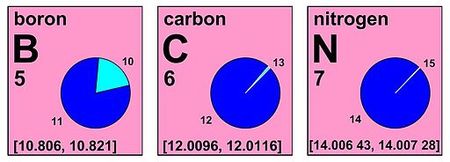
Molar Mass, Molecular Weight and Elemental Composition Calculator
Also, its large mass difference with protium (1 H) (deuterium has a mass of 2.014 102 u, compared to the mean hydrogen atomic weight of 1.007 947 u, and protium's mass of 1.007 825 u) confers non-negligible chemical dissimilarities with protium-containing compounds, whereas the isotope weight ratios within other chemical elements are largely. Atomic number, chemical symbol, and mass number. Carbon has an atomic number of six, and two stable isotopes with mass numbers of twelve and thirteen, respectively. Its average atomic mass is 12.11. Scientists determine the atomic mass by calculating the mean of the mass numbers for its naturally-occurring isotopes. Atomic Mass of Sulfur Atomic mass of Sulfur is 32.065 u. Atomic Mass of Sulfur Atomic mass of Sulfur is 32.065 u.
Molar mass of S is 32.0650 g/mol Compound name is sulfur Convert between S weight and moles
Elemental composition of S
Sample reactions for S
Formula in Hill system is S | ||||||||||||||||||||||||||||||
Computing molar mass (molar weight)To calculate molar mass of a chemical compound enter its formula and click 'Compute'. In chemical formula you may use:
Molar mass calculator also displays common compound name, Hill formula, elemental composition, mass percent composition, atomic percent compositions and allows to convert from weight to number of moles and vice versa. Computing molecular weight (molecular mass)To calculate molecular weight of a chemical compound enter it's formula, specify its isotope mass number after each element in square brackets.Examples of molecular weight computations: C[14]O[16]2, S[34]O[16]2. Definitions of molecular mass, molecular weight, molar mass and molar weight
Give us feedback about your experience with Molecular Weight Calculator. Related: Molecular weights of amino acids | ||||||||||||||||||||||||||||||
| molecular weights calculated today | ||||||||||||||||||||||||||||||

| Back to Online Chemical Tools Menu |
© 2021 webqc.org All rights reserved
How To Find Atomic Mass
| Periodic table |
| Unit converters |
| Chemistry tools |
| Chemical Forum |
| Chemistry FAQ |
| Constants |
| Symmetry |
| Chemistry links |
| Link to us |
| Contact us |
How to cite? |
WebQC.Org online education free homework help chemistry problems questions and answers |
